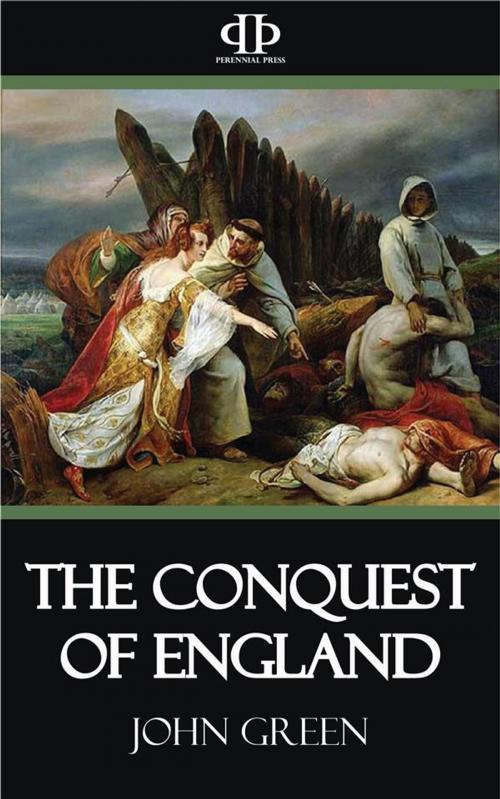| Author: | John Green | ISBN: | 9781518352270 |
| Publisher: | Perennial Press | Publication: | December 27, 2015 |
| Imprint: | Language: | English |
| Author: | John Green |
| ISBN: | 9781518352270 |
| Publisher: | Perennial Press |
| Publication: | December 27, 2015 |
| Imprint: | |
| Language: | English |
FEW periods of our history seem drearier and more unprofitable to one who follows the mere course of political events than the two hundred years which close with the submission of the English states to Ecgberht. The petty and ineffectual strife of the Three Kingdoms, Northumbria, Mercia, and Wessex, presents few features of human interest, while we are without the means of explaining the sudden revolutions which raise and depress their power, or their final subsidence into isolation and inaction. It is only when we view it from within that we see the importance of the time. It was, in fact, an age of revolution – an age in which mighty changes were passing over every phase of the life of Englishmen; an age in which heathendom was passing into Christianity, the tribal king into the national ruler, the ætheling into the thegn; an age in which English society saw the beginnings of the change which transformed the noble into a lord, and the free ceorl into a dependent or a serf; an age in which new moral conceptions told on the fabric of our early jurisprudence, and in which custom began to harden into written law. Without, the new England again became a member of the European commonwealth; while within, the very springs of national life were touched by the mingling of new blood with the blood of the nation itself.
The ethnological character of the country had, in fact, changed since the close of the age of conquest. The area of the ground subject to English rule was far greater than in the days of Ceawlin or Æthelfrith, but in the character of its population the portion added was very different from the earlier area; for while the Britons had been wholly driven off from the eastern half of the island, in the western part they remained as subjects of the conquerors. It was thus that in Ecgberht's day Britain had come to consist of three long belts of country, two of which stretched side by side from the utmost north to the utmost south, and the population of each of which was absolutely diverse. Between the eastern coast and a line which we may draw along the Selkirk and Yorkshire moorlands to the Cotswolds and Selwood, lay a people of wholly English blood. Westward again of the Tamar, of the western hills of Herefordshire, and of Offa's Dyke, lay a people whose blood was wholly Celtic. Between them, from the Lune to the coast of Dorset and Devon, ran the lands of the Wealhcyn – of folks, that is, in whose veins British and English blood were already blending together and presaging in their mingling a wider blending of these elements in the nation as a whole...
FEW periods of our history seem drearier and more unprofitable to one who follows the mere course of political events than the two hundred years which close with the submission of the English states to Ecgberht. The petty and ineffectual strife of the Three Kingdoms, Northumbria, Mercia, and Wessex, presents few features of human interest, while we are without the means of explaining the sudden revolutions which raise and depress their power, or their final subsidence into isolation and inaction. It is only when we view it from within that we see the importance of the time. It was, in fact, an age of revolution – an age in which mighty changes were passing over every phase of the life of Englishmen; an age in which heathendom was passing into Christianity, the tribal king into the national ruler, the ætheling into the thegn; an age in which English society saw the beginnings of the change which transformed the noble into a lord, and the free ceorl into a dependent or a serf; an age in which new moral conceptions told on the fabric of our early jurisprudence, and in which custom began to harden into written law. Without, the new England again became a member of the European commonwealth; while within, the very springs of national life were touched by the mingling of new blood with the blood of the nation itself.
The ethnological character of the country had, in fact, changed since the close of the age of conquest. The area of the ground subject to English rule was far greater than in the days of Ceawlin or Æthelfrith, but in the character of its population the portion added was very different from the earlier area; for while the Britons had been wholly driven off from the eastern half of the island, in the western part they remained as subjects of the conquerors. It was thus that in Ecgberht's day Britain had come to consist of three long belts of country, two of which stretched side by side from the utmost north to the utmost south, and the population of each of which was absolutely diverse. Between the eastern coast and a line which we may draw along the Selkirk and Yorkshire moorlands to the Cotswolds and Selwood, lay a people of wholly English blood. Westward again of the Tamar, of the western hills of Herefordshire, and of Offa's Dyke, lay a people whose blood was wholly Celtic. Between them, from the Lune to the coast of Dorset and Devon, ran the lands of the Wealhcyn – of folks, that is, in whose veins British and English blood were already blending together and presaging in their mingling a wider blending of these elements in the nation as a whole...















